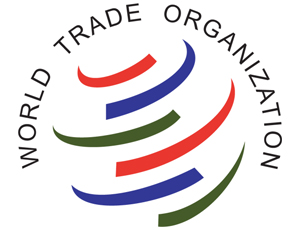 Dec. 9 – On Saturday, the World Trade Organization (WTO) successfully reached an agreement on streamlining customs procedures that is expected to boost global economic output by as much as US$1 trillion and create more than 21 million jobs worldwide.
Dec. 9 – On Saturday, the World Trade Organization (WTO) successfully reached an agreement on streamlining customs procedures that is expected to boost global economic output by as much as US$1 trillion and create more than 21 million jobs worldwide.
Dubbed the ‘Bali Package,’ the agreement reached Saturday is the first ever multilateral trade agreement successfully negotiated by the WTO in its nearly 20-year history.
Many analysts, however, predict the Bali Package will do more to salvage broader WTO talks than significantly ease global commerce.
Under negotiation for more than 12 years, the Bali Package was agreed to in the context of the Doha Development Round – the current round of WTO negotiations that seek to meet the Doha Development Agenda via the lowering of international trade barriers.
While the Bali Package is a significantly scaled-back version of earlier proposals, it does include a number of important provisions that are expected to make it easier and cheaper to move goods internationally by improving customs procedures and cutting red tape.
Other elements of the pact also aim to reduce corruption by eliminating opportunities for customs officials to extort bribes from companies transporting goods across borders.
The binding agreement will require participating countries to implement a number of customs reforms while allowing for considerable flexibility in deciding how quickly to enact the reforms, and providing less developed countries with the opportunity to seek technical assistance in order to fulfill more challenging commitments.
A number of agricultural provisions were also included in the deal that will encourage the elimination of export subsidies and better administration of tariff-rate quotas.
Praise in the Eleventh-Hour
While deadlock over Indian food subsidies and a last-minute veto threat from Cuba nearly derailed the Bali Package, the WTO Ministerial Conference ultimately concluded nearly a day later than scheduled with the unanimous approval of the package by all 159 participating countries.
Last minute negotiations with U.S. Trade Representative Michael Froman are attributed with breaking the deadlock and resulting in the agreement’s ultimate approval several hours late – causing some trade officials to miss their scheduled flights to the next round of Trans-Pacific Partnership (TPP) talks in Singapore.
In what had been dubbed a “make or break” meeting that would test the WTO’s credibility as an international organization, delegates had no shortage of praise for the Bali Package.
WTO Director General Roberto Azevedo proudly proclaimed the WTO’s relevance during the closing session of the ministerial meeting.
“Ladies and Gentlemen, I’m proud to say for the first time in our history the WTO has truly delivered. This package is not an end. It’s a beginning. As a consequence of our progress here, we’ll now be able to move forward on the other areas of our work that have been stalled for so long. With the Bali Package, you have reaffirmed not just your commitment to the WTO but also to the delivery of the Doha Development Agenda. The decisions we have taken here are important stepping stones to the completion of the Doha Round, and it is very welcome that you have instructed us within the next 12 months a clearly defined work program to this end.”
President Obama, also praising the deal, predicted that small and medium-sized enterprises would benefit most from the new agreement.
“This new deal, and particularly the new trade facilitation agreement, will eliminate red tape and bureaucratic delays for goods shipped around the globe. Small businesses will be among the biggest winners, since they encounter the greatest difficulties in navigating the current system.”
Indonesian Trade Minister Gita Wirjawan, who assisted in hosting the Bali conference, declared, “we have negotiated a package that will bring food security to billions of the world’s poorest. We have delivered an agreement on trade facilitation that will inject up to $1 trillion into the world economy. We have agreed to a groundbreaking suite of initiatives to help least-developed countries benefit more from the multilateral trading system. We have crossed the finish line here in Bali, but the race is not over. Now we must complete the Doha round.”
The deal reached Saturday will still require formal ratification by all 159 WTO members, and will likely take years to come into effect.
You can stay up to date with the latest business and investment trends across Asia by subscribing to Asia Briefing’s complimentary update service featuring news, commentary, guides, and multimedia resources.


